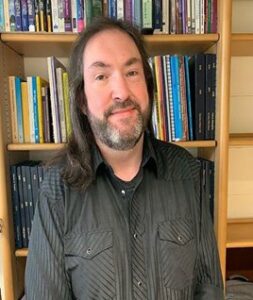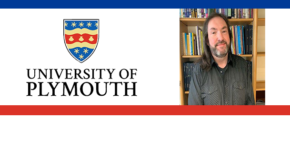 We’re still learning about the horrors of residential schools for indigenous peoples.
We’re still learning about the horrors of residential schools for indigenous peoples.
Steve Minton, associate professor in applied and clinical psychology at the University of Plymouth, delves into this.
I am a human being in formation – currently, a father, partner, brother, uncle and friend; English-born of English, Scottish and Irish Traveller descent; and a researcher, psychologist, educator and advocate, employed full-time as an Associate Professor in Applied and Clinical Psychology at the University of Plymouth, UK, and as a part-time Associate Professor in Education at the University of Southeastern Norway. My early psychological / pedagogical research and practice into the prevention of bullying at schools drew me towards a more systemic understanding of schools as being not only sites of peer violence, but also as being settings where powerful agencies in society (including national governments) can perpetrate violence, especially against minoritised populations.
Residential ‘Schools’ and Indigenous People
In many of the nation states that emerged from European colonization, systems of residential ‘schools’ in which Indigenous children were interred were operational by the late nineteenth century, and continued to be so for at least a further century. These served as sites where Indigenous children were ‘educated’ away from their so-called ‘savage’ backgrounds, and into the so-called ‘civilized’ ways of the colonizing societies. The value systems of the colonizers, especially when formulated into systems of legislature, made such horrific actions, in the settlers’ eyes, just, progressive, and even benevolent and philanthropic.
However, a horrifying history of emotional, physical and sexual abuse, and neglect, in the Indigenous residential ‘schools’ has emerged, and their legacies are ones of significant individual, familial, cultural and historical trauma. Whilst these facts are, in reality, incontestable – we, amongst many, many others, have documented them in Australia, Canada, the Nordic countries, New Zealand and the United States – they have been deliberately obviated and obscured by settler educational and political systems, to the extent that the recent identifications of burial sites of Indigenous children on the grounds of the former residential ‘schools’ in North America have apparently been ‘surprising’ to many settlers.
Hence, epistemicide – the deliberate destruction of knowledge systems – and weaponized forgetting – have accompanied, concealed and cemented the genocidal processes of European and settler colonization. We urge that these truths be engaged with, in their fullest possible sense.
Read More:
- Minton, S.J. (2023). Do not forget them. Thousands of Indigenous children suffered and died in residential ‘schools’ around the world. Their stories must be heard. Available on-line: https://aeon.co/essays/we-must-not-forget-what-happened-to-the-worlds-indigenous-children
- Thiesen, H. (2023). Greenland’s Stolen Indigenous Children: A Personal Testimony. Translated, and with an introductory chapter by S.J. Minton. London: Routledge.
- Minton, S.J. (ed). (2020). Residential School Systems and Indigenous Peoples: From Genocide via Education to the Possibilities for Truth, Restitution, Reconciliation and Reclamation. London: Routledge.
